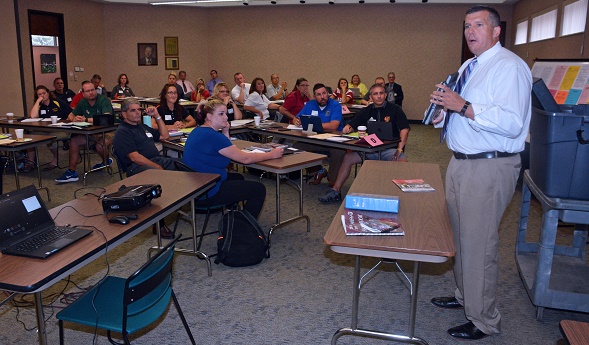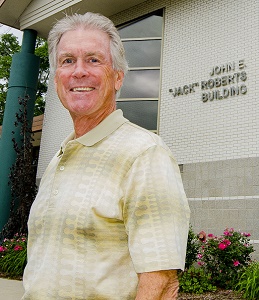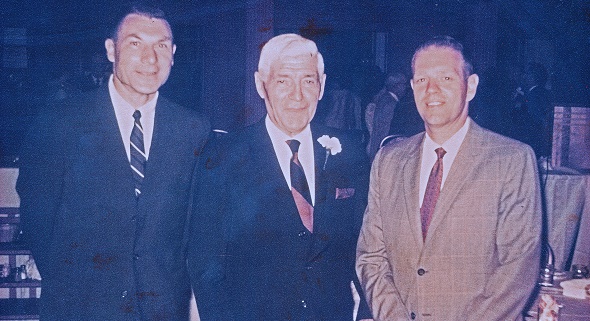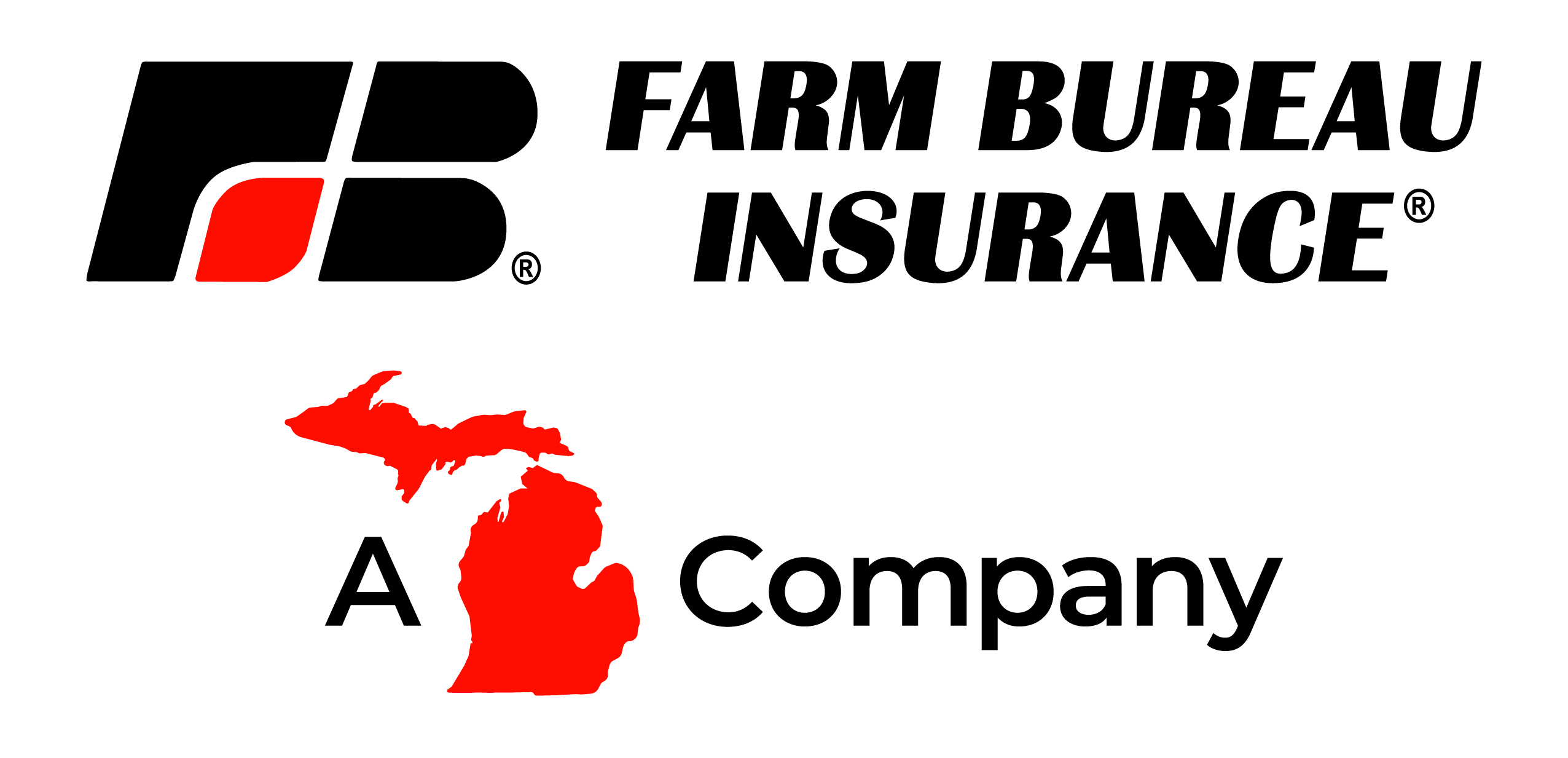
Uyl Follows Roberts in MHSAA SUCCESSion
By
Rob Kaminski
MHSAA benchmarks editor
December 7, 2018
The strength of the MHSAA decade after decade has been solid local school administration under the direction of insightful leaders at the state office in Lansing. New Executive Director Mark Uyl is prepared to build on that foundation while meeting challenges old and new as his tenure begins.
Even if he didn’t know it while it was happening, Mark Uyl spent a great deal of his life honing skills that would lead to his selection as the fifth-ever executive director of the Michigan High School Athletic Association.
Growing up in the world of sports officiating, communication, conviction and the ability to enforce rules and regulations come with the territory. Those who can’t cultivate such skills quickly get out, or get found out.
A decorated and lengthy career in officiating at the high school and collegiate levels serve as testimony that Uyl indeed excelled in those areas.
Those traits, Uyl says, figure to serve him well as he trades in his 14-year-old assistant director’s chair for his seat at the helm of the Association.
“I think the biggest adjustment is that you have to have thick skin and the stomach for enforcement of regulations,” Uyl said. “As an assistant director, I worked with committees and forwarded ideas. Now, as the ultimate decision-maker, I know that some people are going to be happy and some will be upset. I understand that some of this comes with territory.
“I think my officiating background helps. At the end of the day, our members expect that we will follow our rules and enforce our rules. Everyone loves having rules until the day comes when those rules affect ‘our school,’ or ‘our community.’ That’s when the ability to stand firm by the rules determined by our membership will help guide us through the process.”
Officials also listen a lot, many times to people who aren’t happy. That, too, is a skill Uyl brings to the table, not only through his experience in stripes or behind the mask, but also from his years as an educator and assistant director with the MHSAA.
“One of the things I am most proud of since coming to the MHSAA is that I believe I served as a caring voice for officials. They are too often the last people to be defended,” Uyl said. “I think people knew they had a guy who could relate to them and was walking in those same shoes. The relationships I was able to build with many officials in our state is important, and I think that's still an incredibly important function today.”
Other satisfactions came from sports more unfamiliar to Uyl prior to his employment at the MHSAA. Again, listening proved valuable.
“Directing our cross country and wrestling tournaments for many years taught me to be a better listener. Some of the really good things we did in both those sports were improved because we listened to those in the trenches,” Uyl said. “It was a really good lesson. I was probably a better administrator in cross country and wrestling because I was less familiar with those sports and relied on committee expertise. I know baseball, and because of that maybe had too many sacred cows – so to speak – and maybe wouldn’t be as open to ideas.”
Prior to his time at the MHSAA, Uyl first taught and coached and then served as athletic director and assistant principal at Middleville Thornapple-Kellogg High School, the latter from 2001-04. Before becoming an administrator there, Uyl served as athletic director at Caledonia High School in 2000-01.
In his 20-plus years of involvement with educational athletics plenty has changed, some for better and some for worse. Ironically, Uyl cites the same catalyst for both ends of the spectrum.
“Where sports have changed for the better, there are more opportunities than there have ever been. The number of sports – not only in-season, but out-of-season – has increased. There are more options available than ever before. That is often a good thing for kids,” he said.
“But, one of the biggest threats to school sports is the non-school sports economy. More people are making more money at youth, travel and club sport levels. Teachers and coaches in school sports are there to help students learn and grow, to become better people – not just athletes. That’s not always the case outside school sports. Too often, there’s a business dynamic that comes with those sports programs. Parents are quicker to get upset because of the money they've invested; they perceive that their kids are shortchanged by coaches’ decisions or officials’ calls.”
Such experiences can put a dent in officials retention throughout the state, a trend that needs to be reversed.
Uyl knows first-hand the values of positive early experiences in officiating.
“My dad has now been a registered official for 50 years. I grew up seeing what it was like to be an official,” Uyl said. “He ran the youth football, basketball and baseball leagues, and when your dad runs the youth program, you become an emergency official. I’ve always been kind of a rules guy anyway, so I liked that aspect and I also liked the money it put in my pocket. That was my job. I never had a job in fast food, landscaping, or anything like that. It was officiating.”
Uyl officiated collegiate baseball from 1997 until last June, putting away the gear following his 11th NCAA Division I Regional assignment. Working major conference baseball across the United States already put Uyl in elite company, but the pinnacle came with his appointment to the 2014 and 2017 College World Series crews in Omaha. He served as a college football referee for 10 years with several NCAA postseason assignments, and was coordinator of officials for the Michigan Intercollegiate Athletic Association. He was registered with the MHSAA for at least three sports beginning in 1992 and worked the Baseball Finals in 1999.
Uyl graduated from Caledonia High School in 1992 and from Calvin College in 1996 with a bachelor’s degree in history and physical education. He later received a master’s in educational leadership from Grand Valley State University. At Calvin, Uyl was a four-year starter on the baseball team, earning all-conference honors twice and serving as team captain.
Following college, there was little doubt as to his career path.
“In high school, I was just very, very fortunate to have a handful of people who made a huge impact on me as role models. Those people were teachers and coaches,” Uyl said. “I thought, ‘These are pretty impressive people, and hopefully there will be a day when I can give others the same kind of great experiences I had.’ Those coaches and teachers at Caledonia were great motivators.”
His passion for education and athletics made it difficult to imagine ever wanting to make a change professionally, until the opportunity at the MHSAA presented itself. Again, it was officiating that helped tilt the scales.
“At that time it was probably the hardest decision I have had to make in my life because I enjoyed teaching and coaching so much, but saw this opportunity in 2004 as the chance of a lifetime,” Uyl recalled. “Being able to help train and support 10,000 officials statewide was too good of an opportunity. If I didn't like officiating so much, I'd likely have stayed in the school system.”
As a sport director, Uyl has sought to create the best experiences for Michigan high school teams, including with the move of the MHSAA Baseball and Softball Finals to Michigan State University in 2014.
 “The foundation built here by Jack Roberts over the last 32 years is the strongest in the country, and I’m honored to have the opportunity to lead our staff in building on that foundation,” Uyl said. “There will be many ways we’ll continue to protect the same values of educational athletics, while also looking for new ways and new opportunities to best serve the students and our member schools in Michigan.”
“The foundation built here by Jack Roberts over the last 32 years is the strongest in the country, and I’m honored to have the opportunity to lead our staff in building on that foundation,” Uyl said. “There will be many ways we’ll continue to protect the same values of educational athletics, while also looking for new ways and new opportunities to best serve the students and our member schools in Michigan.”
As assistant director, Uyl was instrumental as the MHSAA became the first state high school athletic association to offer concussion care insurance, which provides gap coverage to assist in covering costs for athletes who are injured while participating in MHSAA-sponsored sports.
As the new school year is underway with more immediate targets such as the changing transfer rule for 2019-20 and football playoffs and scheduling, Uyl and the MHSAA staff will also keep the well-being of student-athletes in their scope.
“Shortly after beginning my new role here, I met with some folks in the medical community, and it was interesting to hear that mental health among adolescents has become a huge priority,” Uyl said. “I had a doctor tell me that where he used to spend most of his days treating injuries and illnesses, now it’s just as much – or more – depression, anxiety and other mental health issues among school-age children that he is seeing. This certainly is an area that we have to keep at the forefront; how can we assist or provide programs to heighten awareness?
“We always assume that kids who play sports are the most healthy because they are busy and engaged and have it together, but now we are hearing that there are real mental topics that we need to discuss.”
Another long-range and continuing point of emphasis focuses on participation and multi-sport participation.
“While we have decisions to make regarding football playoffs and scheduling, the conversation needs to turn to participation numbers in that sport,” Uyl said. “We are losing freshman teams, JV teams, and at the youth level the numbers are down, too. Communities that used to have three and four teams now have one. If we don’t get our arms around participation, then all the playoff and scheduling stuff won’t matter in a few years.”
Participation is a hot topic for more than just the traditional sports like football. The MHSAA will continue to focus efforts toward multi-sport participation to combat specialization trends, and also bolster its presence at the junior high/middle school level, where students get their first taste of school-based athletics.
And even with 18 sports available to MHSAA member schools, Uyl promises to evaluate changing interests of students, which could lead to expanded opportunities.
“We will look with an objective eye to determine whether what we've traditionally offered continues to fit, and also look at expansion,” Uyl said. “The one that gets eyes rolling to anyone over 35 is e-sports, but to 20-somethings that could be the next big thing. We will also continue to be an inclusive organization, working closely with organizations such as Special Olympics. Our goal and purpose needs to involve all kids as their interests change with the times.”
Uyl is the fifth full-time executive in the MHSAA’s 94-year history, following Charles E. Forsythe (1931-42, 1945-68), Allen W. Bush (1968-78), Vern L. Norris (1978-86) and Roberts (1986-2018).
Uyl resides in DeWitt with his wife Marcy, an accomplished educator who has served as a high school varsity basketball coach since 1994. They have three children: Jackson (17), Grant (15) and Madison (11).
“Mark was the obvious choice to become the next executive director of the MHSAA,” said Roberts, who passed the torch after 32 years, and whose name now adorns the Association’s headquarters on Ramblewood Drive in East Lansing. “Mark has the proper student-focused perspective of educational athletics, excellent person-to-person communications skills and a deep practical understanding of what is happening day to day in school sports here and nationally.”
As they say in officiating, it was a good call.

Leading State's Schools a Labor of Love
The names – Norris, Bush, Forsythe – at one time synonymous with school sports in Michigan, are sometimes today more connected to MHSAA awards or meeting rooms at the home office in East Lansing.
But before the Norris Award recognized excellence in officiating, or the Bush Award lauded contributions to the MHSAA, or the Forsythe Award heralded excellence in athletics, these were the men who captained the MHSAA ship ahead of recently retired Jack Roberts.
Charles Forsythe was the MHSAA’s first executive director, guiding the Association from 1931-68. He was followed by Allen Bush, who took the reins from 1968-78 after serving under Forsythe as an assistant director from 1960-63 and as associate director from 1963-68. Vern Norris succeeded Bush in 1978 and would direct the MHSAA until 1986. From there it would be Roberts, whose 32-year term was second in length only to Forsythe’s span. During Roberts’ final days in August, he enjoyed a ceremony during which the current MHSAA building was named for him.
The four former executive directors had in common the traits of leadership, vision and passion, and always placed the good of scholastic sports at the forefront when weighing proposals and decisions.
The MHSAA was founded in 1924, when a different Forsythe, L.L., began an 18-year term as president of its Representative Council. In 1931, Charles Forsythe became the MHSAA’s first full-time executive director, a post he would occupy for 37 years.
A native of Milan and graduate of University of Michigan, Charles Forsythe was the athletic director at Lansing Central High School from 1923 until 1929 when he became the assistant director of athletics with the MHSAA. Two years later, he became the first executive director, guiding the Association until 1968 for all but a 37-month tour during World War II as a Navy Commander.
Forsythe was one of the first and finest authors on the topic of interscholastic athletics, and his “Administration of high school athletics” was used by administrators around the globe at that time.
In 1951, he received the Honor Award for the American Association for Health, Physical Education and Recreation, and in 1965 Eastern Michigan University presented him with an honorary Doctor of Laws degree.
Forsythe died in December 1968, months after his August retirement from the MHSAA.
Bush served under Forsythe from 1960 until he began his 10-year term as executive director in 1968. Bush oversaw some of the most significant developments in MHSAA history, chiefly the addition of girls sports – MHSAA tournaments existed for nine girls sports when he retired – plus the addition of football playoffs in 1975, and MHSAA tournaments in baseball, ice hockey and skiing.
Bush was a graduate of Kalamazoo University and later earned multiple bachelor’s degrees from Western Michigan University and a master’s in school administration from University of Michigan. He was captain of the football team at WMU and received its Most Valuable Player and Athletic-Scholarship awards as a senior, and later was named Man of the Year in 1975 by WMU’s Alumni W Club.
Bush also studied at Princeton University and the University of Arizona and served six years of active duty with the U.S. Marine Corps during World War II and the Korean War. He was discharged with a rank of first lieutenant.
Bush died in 2013 at age 90.
Norris served under both Forsythe and Bush, beginning his work at the MHSAA in 1963. He would succeed Bush at the top in 1978.
Norris brought to the MHSAA a wealth of experience having coached at Traverse City, Rockford and Hillsdale high schools. He served as Assistant Director of Placement at Western Michigan University for the five years prior to joining the MHSAA staff, and during that time Norris built a reputation as a highly-regarded game official in the Kalamazoo area – and worked as a referee during the 1963 MHSAA Class A Boys Basketball Final.
Norris served on a number of national rules-making bodies during his 23-year tenure with the MHSAA, and as president of the Executive Board of the National Federation of State High School Associations (NFHS) during the 1983-84 school year. But he was best known for his work with Michigan’s coaches and especially officials.
Norris remained a frequent visitor to the MHSAA office prior to his death last February.
Roberts took the controls in 1986 at age 37, then the youngest leader of a high school athletic association, and would leave last August as the longest-serving active director in the nation after 32 years.
Under Roberts’ leadership, overall participation in high school athletics in Michigan increased 10 percent, and the MHSAA added more than 200 schools in increasing its membership by more than 15 percent at the high school and junior high/middle school levels combined. Most recently, in 2016, 6th-graders were allowed to compete for member schools for the first time as a push was made to increase junior high/middle school membership and serve the state’s students at an earlier age.
But the most significant and arguably lasting work influenced by Roberts came on topics not related to specific sports or competition. The MHSAA has led nationally in concussion care with its first programming in 2000 and return-to-play protocols enacted in 2010, and with concussion pilot testing, mandated reporting and insurance for those who suffer head injuries rolled out in 2015.
He is a 1970 graduate of Dartmouth College and previously served as an assistant director for the National Federation from 1973-80. He came to the MHSAA in 1986 from the Fellowship of Christian Athletes.
PHOTOS: (Top) MHSAA Executive Director Mark Uyl speaks during an in-service for new athletic directors this fall. (Middle) Jack Roberts stood this summer in front of the building that now bears his name. (Below) Al Bush, Charles Forsythe and Vern Norris.

2026 Scholar-Athlete Award Recipients Announced in Class A
By
Geoff Kimmerly
MHSAA.com senior editor
February 17, 2026
The Michigan High School Athletic Association has selected 13 student-athletes from Class A member schools to receive scholarships through the MHSAA/Farm Bureau Insurance Scholar-Athlete Award program.
 Farm Bureau Insurance, in its 37th year of sponsoring the award, will give $2,000 college scholarships to 32 individuals who represent their member schools in at least one sport in which the Association sponsors a postseason tournament. The first 30 scholarships are awarded proportionately by school classification and the number of student-athletes involved in those classes; also, there are two at-large honorees who can come from any classification.
Farm Bureau Insurance, in its 37th year of sponsoring the award, will give $2,000 college scholarships to 32 individuals who represent their member schools in at least one sport in which the Association sponsors a postseason tournament. The first 30 scholarships are awarded proportionately by school classification and the number of student-athletes involved in those classes; also, there are two at-large honorees who can come from any classification.
Students applying for the Scholar-Athlete Award must be carrying at least a 3.5 (on a 4.0 scale) grade-point average and have previously won a letter in a varsity sport in which the Michigan High School Athletic Association sponsors a postseason tournament. Other requirements for the applicants were to show active participation in other school and community activities and produce an essay on the importance of sportsmanship in educational athletics.
The 32 scholarship recipients will be recognized March 14 during the MHSAA Boys Basketball Finals at the Breslin Student Events Center in East Lansing.
The Class A Scholar-Athlete Award honorees are Lydia Binelli, Berkley; Brynn Corrion, Bay City Central; Lilamae Frank, Battle Creek Lakeview; Ava Mac Donald, Rochester Adams; Maggie Rothstein, Holland West Ottawa; Maggie Telgenhof, Holland; Ari Blank, Birmingham Groves; Sajan Doshi, Bloomfield Hills; Omar Elghawy, Portage Northern; Trevor Griffith, Flint Kearsley; Benjamin Hu, Northville; Amogh Mavatoor, Northville; and Ian Morgan, Okemos.
Overviews of the scholarship recipients of the Class A Scholar-Athlete Award follow. A quote from each recipient's essay also is included:
 Lydia Binelli, Berkley
Lydia Binelli, Berkley
Ran four seasons of cross country, is competing in her third of gymnastics and will compete in her fourth of track & field this spring. Has qualified for Regional competition in 11 events across her three sports and earned league medals in cross country and gymnastics. Served as captain of all three teams. Earned AP Scholar with Distinction and College Board national recognition. Participating in third year of National Honor Society and fourth of Science National Honor Society, and as president of the latter this school year. Serving fourth year on superintendent’s student advisory board. Created Bravery Bears project to serve children in post-anesthesia care units and participated in Focus: HOPE’s Generation of Promise leadership program. Will attend University of Michigan and study biology, health and society.
Essay Quote: “I started struggling with feeling not good enough because I constantly compared myself to (my teammate). … Our friendship was as strong as ever, but nevertheless, I felt inferior. After a late-summer run, our coaches called us over. We were going to be the only two junior captains for the girls side. I realized then that we were the leaders, and no longer just part of the team. We had the opportunity to build our girls team up. Together.”
 Brynn Corrion, Bay City Central
Brynn Corrion, Bay City Central
Played two seasons of varsity volleyball, is playing her first of varsity basketball, and will play her fourth of varsity soccer and compete in her fourth of track & field this spring. Earned all-league recognition in volleyball and soccer and qualified for Regionals in track. Earned league all-academic honors the last three years and served as co-captain in volleyball, soccer and basketball. Expects to enter college with 42 credits earned by dual enrollment, and participating in third year of National Honor Society. Participated in DECA and with regional Child Abuse and Neglect Council as a junior and Great Lakes Bay Region Youth Leadership Institute as a senior. Will attend Delta College and then transfer to Northwood University, and study marking and management.
Essay Quote: “Our team lacked effort and respect, disregarding the spirit of competing with pride. Yet that year became one of the most important learning experiences of my athletic career. It taught me critical life skills and the responsibility of carrying good sportsmanship through all my varsity athletics. Equally important is how I transfer these lessons into the classroom, working respectfully and collaboratively with teachers and peers. In the end, character, teamwork, and integrity matter far more than stats or scoring.”
 Lilamae Frank, Battle Creek Lakeview
Lilamae Frank, Battle Creek Lakeview
Ran four season of cross country, is playing her third of varsity basketball, and will play her fourth of varsity soccer and compete in her fourth of track & field this spring. Qualified multiple seasons for MHSAA Finals in cross country, earned all-state recognition in soccer and was a city champion in track and cross country. Served as cross country and basketball junior varsity team captain. Participated in DECA throughout high school, earning a state championship as a junior and serving as president of promotions as a senior. Participating in second year of National Honor Society and fourth of show choir, as a section leader this school year. Participated in theater club throughout high school and contributed to school television network all four years and earned state awards for production. Will attend Ball State University (Ind.) and study sports media and broadcasting.
Essay Quote: “High school sports have taught me how to be a great teammate and competitor, but the true takeaway is the better person I’ve become. Character is worth way more than any medal or trophy in my bedroom. I will pay it forward and will forever be the person who reaches out their hand to help lift others up.”
 Ava Mac Donald, Rochester Adams
Ava Mac Donald, Rochester Adams
Competing in third season of competitive cheer and will play her third season of varsity lacrosse in the spring. Helped cheer team to MHSAA Finals runner-up finish and lacrosse team to league title, earning academic all-state in both sports while contributing to team academic all-state awards in both. Served as captain of both teams. Participating in third years of National Honor Society and Spanish National Honors Society. Serving on student council and as president of Interact Club, and has participated in Key Club and UNICEF club throughout high school. Founded Tiny Steps dance collective. Participated for two years in Michigan Medachieve program and two as part of Health Occupations Students of America. Is finalizing where she will attend college and her course of study.
Essay Quote: “In a sport where lifting each other up is a physical requirement, it becomes a moral obligation as well, reflecting the honor and integrity within each athlete. At the end of the day, success or failure, each cheerleader and athlete makes the decision to show up to practice, play the game, perform the routine, and give it their all.”
 Maggie Rothstein, Holland West Ottawa
Maggie Rothstein, Holland West Ottawa
Played three seasons of varsity golf and will play her fourth of varsity tennis this spring. Earned all-state honorable mention and helped team to Regional championship in tennis. Earned all-area and academic all-state in golf, and helped both teams to academic all-state team awards. Served as captain of both teams. Earned AP Scholar award and certified nursing assistant certification. Participating in second year of National Honor Society and as chapter vice president, and serving fourth year on student government and second year as class vice president. Serving third year on Holland Youth Advisory Committee and participating in second year of West Ottawa Equality Now club. Will attend University of Michigan and study nursing.
Essay Quote: “It is the quiet choice to stay cool when something feels unfair, to respect the call even if it hurts, to play for the joy instead of the win. On the court or in the program, it is all the same. I play for the kids who cannot, and I am thankful I get to compete when some kids never will. So instead of getting mad over a silly point, I am grateful for being out there.”
 Maggie Telgenhof, Holland
Maggie Telgenhof, Holland
Competed four seasons of swimming & diving, completing third of varsity basketball and will play her fourth of varsity softball this spring. Earned all-conference recognition in softball and academic all-state in basketball, and qualified for Diving Regionals all four years. Served as captain of all three teams. Serving fourth year on student senate and as president. Participating in fourth year of Youth in Government and third of National Honor Society, the latter as chapter secretary. Participating in second years of Holland Youth Advisory Council and school’s athletic leadership committee, and co-founded the latter. Played two years in school marching band. Participated in Students Helping Our Remarkable Environment club throughout high school. Will attend University of Michigan and study kinesiology, pre-athletic training and movement science.
Essay Quote: “Sportsmanship is also a choice you make in your hardest moments. I’ve had games where I wanted to throw something out of frustration, but sportsmanship pushes you to rise above that instinct. It’s learning to pause and not take the impulsive path. It’s walking away from trash talk instead of joining. Choosing to be the steady teammate when the pressure rises shows commitment to the game and respect for everyone involved.”
 Ari Blank, Birmingham Groves
Ari Blank, Birmingham Groves
Played three years of varsity tennis and will play his second of varsity golf this spring. Earned all-state in tennis as a senior and earned league scholar athlete awards in both sports multiple seasons. Served as tennis team captain as a senior. Participating in second year of National Honor Society. Played in school’s concert and symphony orchestras throughout high school and earned “1” orchestra ratings from the Michigan School Band and Orchestra Association. Served as campus captain for his school’s mental health awareness program and a mentor as part of Big Brothers Big Sisters. Serving third year as student ambassador to the school district superintendent. Will attend University of Michigan and is finalizing his course of study.
Essay Quote: “(Sportsmanship is) not about following the rules when the coach is watching. It's the conscious decision to uphold the honor of the game, even when it costs you greatly. In high school tennis and golf, this integrity is our greatest strength and the most profound lesson we can take away from the golf course or tennis court into life. It teaches us that true success is measured by the character we show when the only referee is ourselves.”
 Sajan Doshi, Bloomfield Hills
Sajan Doshi, Bloomfield Hills
Played four seasons of varsity tennis, earning all-state recognition and finishing with a 72-2 career record. Contributed to MHSAA Finals team championships his first three years of high school and was part of the No. 3 doubles flight champion as a junior. Served as team captain as a senior. Participating in third year of Spanish National Honors Society and fourth of student government. Competed as part of Future Business Leaders of America throughout high school, making state finals and qualifying for national competition. Competed in forensics throughout high school, winning two state championships. Served as co-president of FBLA team and president for forensics. Founded Downsize with Dignity decluttering service and co-founded Lil Aces Tennis Academy, which has served more than 250 youth players and raised more than $12,000 for charity. Served on boards of investing club and Indian-American Student Association. Will attend University of Michigan and study finance.
Essay Quote: “We had a true respect for one another, and an understanding that the wins and losses ultimately mean less than the experience, wisdom, and memories gained from giving everything you have and lifting each other up. Motivation, preparation, effort, struggle, strategy, maximum effort, fair ethical play, and treating your opponents with respect ... sportsmanship truly represents a microcosm of life.”
 Omar Elghawy, Portage Northern
Omar Elghawy, Portage Northern
Played four seasons of varsity tennis, will play his second of varsity lacrosse this spring and competed in track & field as a freshman. Earned all-conference and academic all-state recognition in tennis and served as team captain as a senior. Participating in second year of National Honor Society and fourth as part of student senate, this year as student body president. Competed two years as part of DECA and forensics teams. Participated in Kalamazoo Nonviolent Opponents of War group throughout high school, earning Martin Luther King Youth Social Justice Award from the Kalamazoo city commission. Helped lead school’s student cheering section. Participated in community service work that included helping raise money for C.S. Mott Children’s Hospital. Is undecided where he will attend college and is finalizing his course of study but considering a pre-law track.
Essay Quote: “As captains, we worked with our coach to dedicate a few practices to mental toughness and good sportsmanship. Even in mistakes, we saw how sportsmanship is a necessary part of learning. … In a world with unfavorable circumstances, it is vital to purify what's already there to crystallize into a diamond rather than become a lump of coal.”
 Trevor Griffith, Flint Kearsley
Trevor Griffith, Flint Kearsley
Played three seasons of varsity football, is playing his second of varsity basketball and will compete in his fourth season of track & field this spring. Earned all-conference and league scholar-athlete recognition in football and qualified for Regional competition in shot put. Served as captain of football and basketball teams and field event captain for track. Participating in second year of National Honor Society and served on school’s athletic leadership council. Attended Genesee Career Institute for two years for welding and advanced welding and earned several certifications. Volunteered as part of school’s summer learning program and has participated as a youth basketball and football mentor and referee throughout high school. Is undecided where he will attend college, but intends to study aerospace engineering.
Essay Quote: “This year, my senior year, we decided we didn’t want to be the storm, we wanted to be the spark. We leaned into competitiveness with respect. We stopped responding to negativity with negativity. We started showing up for each other, celebrating the right things, and reminding the younger players that being an athlete is about more than winning, it’s about how you win, how you lose, and how you treat the people standing across from you. Here’s what I’ve learned: sportsmanship is contagious.”
 Benjamin Hu, Northville
Benjamin Hu, Northville
Competed on boys swimming & diving team all four years of high school. Swam on MHSAA Finals championship relay as a junior and has earned all-state five times over his first three seasons. Has qualified for USA Swimming futures and national competitions. Served as team captain. Earned AP Scholar with Distinction recognition. Played in University of Michigan Youth Symphonic Band throughout high school and solo & ensemble his first three years and earned MSBOA “1” rating; also won Michigan Open classical piano competition. Attended Michigan New Century Chinese School throughout high school and served as lifeguard and swim instructor also all four years. Will attend University of Michigan and study biomedical engineering.
Essay Quote: “… (My teammate) knew I wasn't drowning in the water, but in my own thoughts. For the remainder of that practice, I focused on the steady kick in front of me, a lifeline that I didn't know I needed. That moment, in the red-tinted gloom of a 5 a.m. practice, is what true sportsmanship is. It's not the polished handshake after a buzzer. It's the unobserved investments in the person next to you when they're at their worst. It's the team coming together to say, ‘Your struggle is our struggle.’”
 Amogh Mavatoor, Northville
Amogh Mavatoor, Northville
Played four years of varsity tennis, competed two in track & field and one on the junior varsity bowling team. Earned an MHSAA Finals No. 4 singles championship in 2023 and twice earned all-state recognition in that sport. Also named academic all-state all four years and served as tennis team captain. Earned AP Scholar with Distinction recognition and named National Merit Scholarship Commended Student. Participated in National Honor Society and Spanish National Honor Society. Participated in DECA throughout high school, serving on executive board and winning two state championships. Served as president and program director of ACEing Autism chapter and serving second year on Wayne County Civic Youth Council and as part of its executive board. Serving on VT SEVA Detroit executive board working to assist underprivileged and visually-impaired children in India. Co-founded and serves as co-president of Hope for Dignity providing for underprivileged communities in Michigan and India. Earned state and national community service awards. Will attend University of Michigan and study business administration.
Essay Quote: “ … Sportsmanship isn’t the absence of competition; it’s the way we choose to compete. It’s choosing integrity when no one would blame you for doing the opposite. It’s understanding that the respect you earn matters more than the result you achieve.”
 Ian Morgan, Okemos
Ian Morgan, Okemos
Ran four seasons of cross country and will compete in his fourth of track & field this spring. Earned all-state in cross country the last two seasons and all-conference in both sports; also earned academic all-state the last three years. Served as cross country team champion as a senior. Participated in National Honor Society the last two years. Played the last three years in school’s symphonic wind ensemble and philharmonic orchestra, and competed three years in MSBOA solo & ensemble events, earning multiple “1” ratings. Served as school camp counselor and Vacation Bible School teen leader, and participated throughout high school as part of community service and student orientation teams. Will attend College of Holy Cross in Massachusetts and is finalizing his course of study.
Essay Quote: “My experience of sportsmanship extended to athletes I once saw only as rivals. I race runners in my league about five times each season. I always wish the guys beside me good luck on the line. Over time, the pre-race small talk grew into friendship. … I learned that treating competitors with respect opens the door to friendships I never expected.”
Other Class A girls finalists for the Scholar-Athlete Award were Reese Beauleaux, Adrian; Sydney Behnke, Bloomfield Hills Cranbrook Kingswood; Justine Casey, Bloomfield Hills Cranbrook Kingswood; Laurin M. Edwards, Detroit Cass Tech; Arabella Glass, Waterford Kettering; Ella Griffin, Bloomfield Hills; Jillian Hayes, Saline; Veda Keshavamurthy, Plymouth; Grace Kim, Farmington Hills Mercy; Anna Linen, White Lake Lakeland; Bella Matthews, Bay City Central; Gracelynn Olson, Fruitport; Meredith Peterson, White Lake Lakeland; Jade Queen, Grand Ledge; Jacey Roy, Birmingham Groves; Asia Shi, Ann Arbor Huron; Mattie Thompson, Okemos; and Julia Yoder, Birmingham Groves.
Other Class A boys finalists for the Scholar-Athlete Award were Sami Anwar, Plymouth; Luke Desnoyer, Royal Oak; Ian Deters, Grand Ledge; Ryan Dye, Detroit Catholic Central; Caleb Garrett, Birmingham Seaholm; Matthew Huang, Midland Dow; Andrew Legg, Holland; Eli Macauley, Grand Rapids Forest Hills Northern; Nicholas Maeso, Royal Oak; Matthew McGaugh, Midland Dow; Eamon Murray, Midland; Wesley Rogers, Mason; Drew Rothstein, Holland West Ottawa; Carson Soltis, DeWitt; Marcel Stork, Mattawan; Kazutaka Suzuki, Canton; and Owen Wohlfert, Traverse City West.
The Class C and D scholarship award recipients were announced Feb. 3, and the Class B honorees were announced Feb. 10.
Farm Bureau Insurance of Michigan was founded in 1949 by Michigan farmers who wanted an insurance company that worked as hard as they did. Those values still guide the company today and are a big reason why it is known as Michigan’s Insurance Company, dedicated to protecting the farms, families, and businesses of this great state. Farm Bureau Insurance agents across Michigan provide a full range of insurance services — life, home, auto, farm, business, retirement, Lake Estate®, and more — protecting nearly 500,000 Michigan policyholders.
The MHSAA is a private, not-for-profit corporation of voluntary membership by more than 1,500 public and private senior high schools and junior high/middle schools which exists to develop common rules for athletic eligibility and competition. No government funds or tax dollars support the MHSAA, which was the first such association nationally to not accept membership dues or tournament entry fees from schools. Member schools which enforce these rules are permitted to participate in MHSAA tournaments, which attract more than 1.4 million spectators each year.

